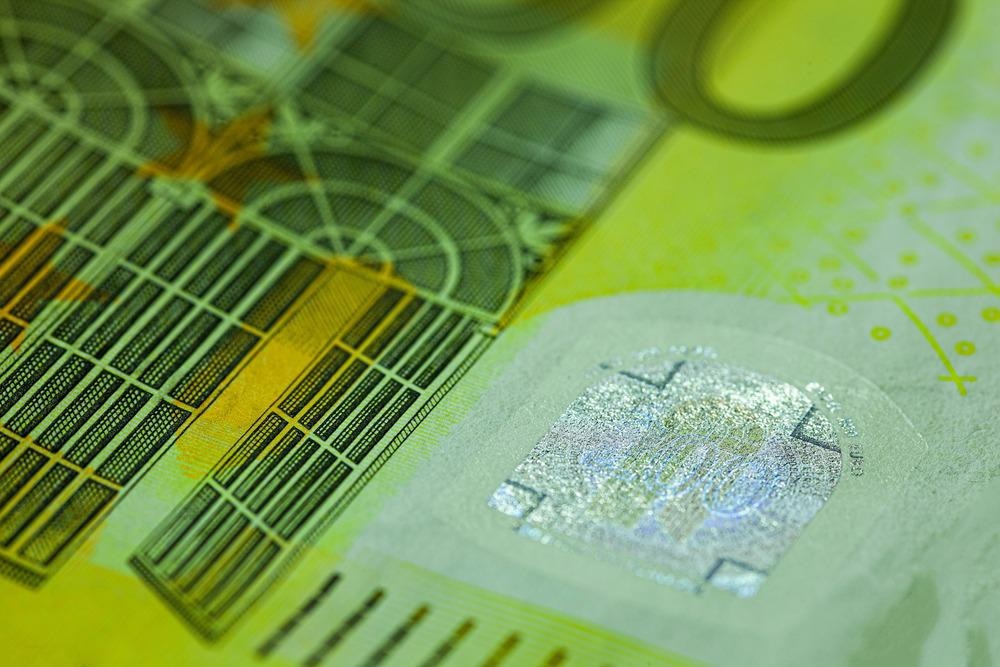In a study published in the journal ACS Applied Materials & Interfaces, a mix of chemistry, nanomaterials, and artificial intelligence (AI) was used to produce a straightforward yet cryptographic anticounterfeiting measure.

Study: Nanocatalyst-Enabled Physically Unclonable Functions as Smart Anticounterfeiting Tags with AI-Aided Smartphone Authentication. Image Credit: Cavan-Images/Shutterstock.com
The Need for Effective Anticounterfeiting Techniques
The requirement for robust anti-counterfeit solutions is driving scholarly and corporate research to enhance the authenticity and safety of products. The spread of counterfeit commodities is a huge nuisance all over the globe, particularly in the retail and pharmaceutical industries. Fake pharma goods endanger patients and compromise public health, resulting in high economic and social costs for developed as well as developing nations.
To put the magnitude of the issue into perspective, counterfeit medications for treatments of pneumonia and malaria kill roughly 250,000 children annually. Such a significant problem necessitates a serious technical effort to develop powerful anti-counterfeit technologies that are also consistent with market constraints.
Numerous substances and chemical procedures have been suggested as biometric markers. These vary from intricate ink compositions utilized in currency notes to luminous upconverting nano-phosphorous tags, inkjet printable conjugate polymeric platforms, or molecular identifiers like peptides, DNA, and polymers that promise large encoding potentials and secrecy.
These technologies, however, may be cloneable. Moreover, they often need costly hardware and highly skilled workers, restricting their practical uses.
Nanotechnology can Improve PUFs
A highly sophisticated anti-counterfeit technique was provided in this system using physically unclonable functions (PUFs) that are predicated on distinct markers created by chemical procedures in a stochastic mechanism. The unpredictability created by the non-deterministic technique assures that replicating the PUF key is just about impossible whenever the PUF sequence is digitized and saved.
If there are not enough distinct markers to secure a significant number of objects, PUFs' encoding capability may be restricted. Owing to the unpredictability and huge parametric space provided by nanostructures paired with physiochemical procedures, this problem may be solved if PUFs are created using methods based on nanotechnology that provide a significant encoding potential which translates to a large quantity of distinct markers.
Critical Aspects of PUFs
The distinguishing physical trait is often a randomized two-dimensional or three-dimensional pattern, leading to various visual readings. Certain nanotechnology-based PUFs, like glass microbead randomized speckle patterning, inkjet-printed unclonable quantum dot (QD) fluorescent tags, and Au nanoparticle (NP) or Ag nanowire (NW) randomized patterns have lately been described.
Tag reading is crucial because several approaches depend on intricate hardware for verification, like dark-field, fluorescent, or electron microscopy, limiting their applicability for the overall supply chain needs, like mobility, quickness, repeatability, and reduced price of the procedure.
Salient Features of the Study
The technique suggested in this study aimed to achieve all of the aforementioned desirable characteristics, delivering an adequate anti-counterfeit approach via a rapid (1 minute), reversible, and equipment-free colorimetry reading facilitated by nanoscale Pt catalysts, which would be usable at any juncture of the supply network, even the end user.
Owing to the creation of a dependable AI method for quick and reliable visual marker authentication on the basis of Deep Learning and Computer Vision approaches, this nanotechnology-facilitated system may be readily encoded and then authorized via a cellphone.
Key Takeaways
In this study, the team demonstrated the possibility of merging chemistry, nanotechnology, and artificial intelligence to build novel cross-discipline techniques aimed at addressing critical sustainability and security challenges.
A sophisticated reversible PUF marker was presented that combined the achievement of distinct patterning with substantial encryption capabilities with a visual colorimetry reading perceptible by the human eye and analyzable using a cellphone.
The approach adopted by the team provided great ease in authenticating (i.e., equipment-free visual reading) as well as cutting-edge encryption capabilities by using the catalytic characteristics of nanoparticles. The suggested technique may be improved by creating various stochastic patterns and platforms, resulting in even greater security levels.
The ability to achieve repeated verification cycles in ambient settings, owing to the rapid (ON/OFF) color emergence/fading system evoked by the nanoscale platinum catalysts, opens up fresh avenues for in-situ analyses of potential counterfeits of high-quality goods throughout the entire supply network, from quality control after production to individual evaluation by the end-user.
Reference
Moglianetti, M., Pedone, D. et al. (2022). Nanocatalyst-Enabled Physically Unclonable Functions as Smart Anticounterfeiting Tags with AI-Aided Smartphone Authentication. ACS Applied Materials & Interfaces. https://pubs.acs.org/doi/10.1021/acsami.2c02995
Disclaimer: The views expressed here are those of the author expressed in their private capacity and do not necessarily represent the views of AZoM.com Limited T/A AZoNetwork the owner and operator of this website. This disclaimer forms part of the Terms and conditions of use of this website.